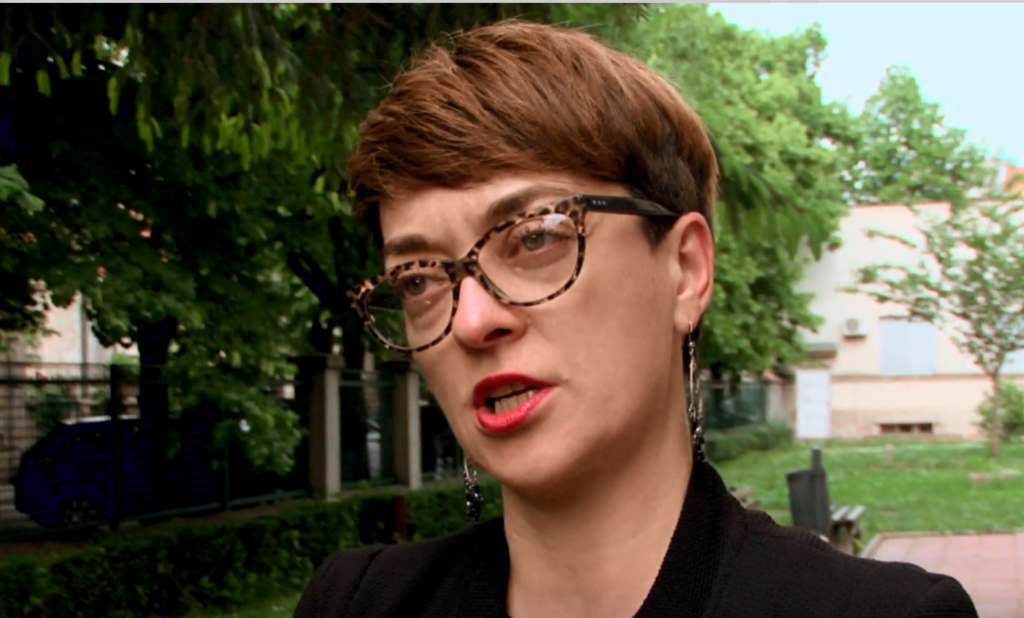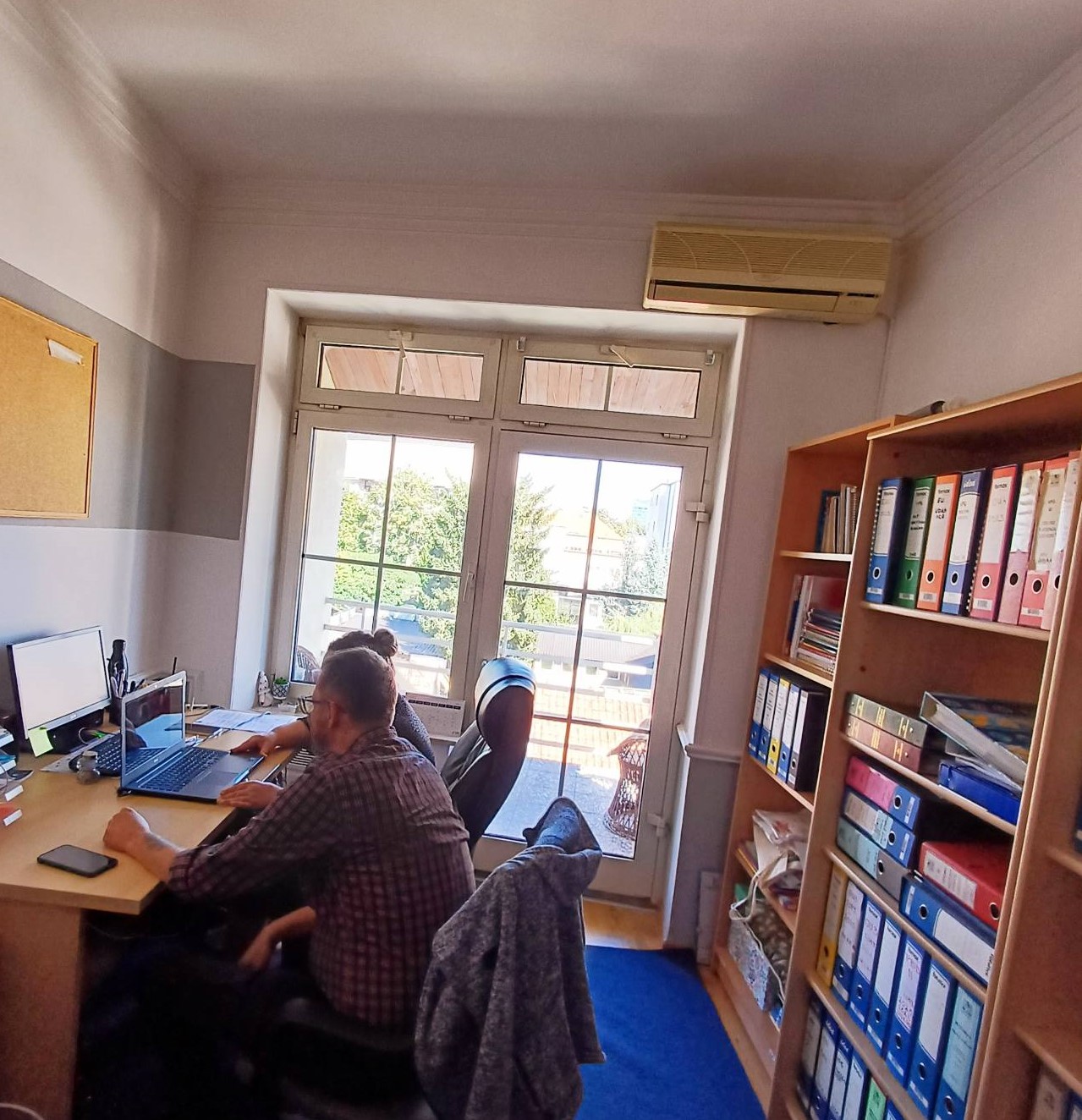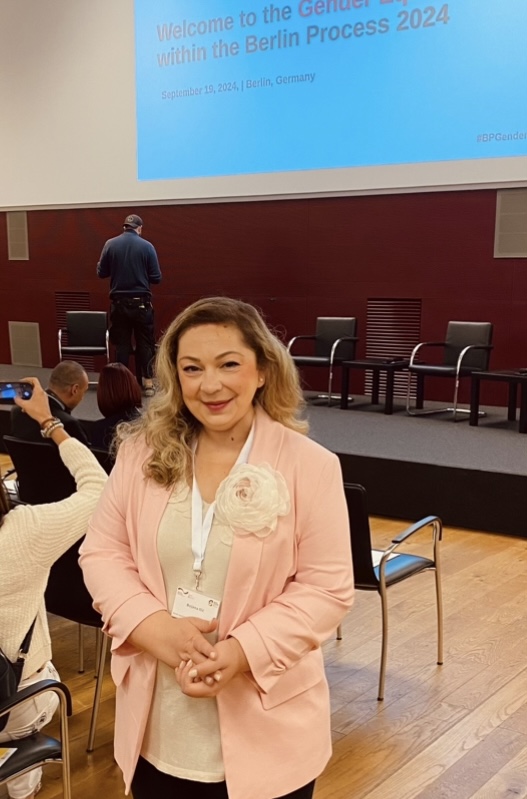Current situation in Serbia and the region, but also beyond, show us that the process of advocating for the denial of basic rights and freedoms, as well as limiting the space for women to make decisions about their own identities, bodies and sexuality, personal and political choices and actions, has begun.
Interviewed by: Rubina ČENGIĆ
The peaceful movement Walk for Life has been active in Croatia since 2016, and last year protests aimed at criminalizing abortion were held in 12 cities. Poland significantly tightened abortion laws, and at least 2 women died as a result. Abortions are not tried to be reduced by sex education but by controlling women, and laws are not the only way women are tried to be controlled. Sometimes common law is much stronger than laws, which encourage the spread of misinformation on these topics, says or warns Jelena Višnjić, director of the Feminist Cultural Center.
Jelena Višnjić is a professor at the University of Novi Sad, one of the founders and director of BeFem – Feminist Cultural Center, coordinator of the program Feminist Media Culture: Production of Gender, lecturer at the Center for Women’s Studies in Belgrade and activist of the feminist movement. From February 2021, with a team of co-workers at the Faculty of Media and Communications in Belgrade, she leads the one-semester course Politics of Representation: Gender and Violence.
Right-wingers and the church against emancipation
INTERVIEW: How did anti-gender organizations and even movements come about, who is behind them, what is their goal?
VIŠNJIĆ: Under the influence of global trends, anti-gender movements in Serbia are becoming stronger and tend to limit women’s rights and freedoms. These movements are closely connected with organizations from other countries; they have stable sources of funding from several countries and companies. The spread of influence of right-wing and anti-gender groups in Serbia can be linked to global causes such as economic and political crises, and crises of national identity, but it is also shaped by local specificities, including war traumas and the glorification of war crimes from the 1990s. Right-wing organizations and the Serbian Orthodox Church not only oppose the emancipation of women, but they persistently oppose those values and openly violate the rights guaranteed by the Constitution and laws of Serbia.
INTERVIEW: What anti-gender actions do you recognize or see in Serbia and BiH?
VIŠNJIĆ: The attack of anti-gender movements and the Serbian Orthodox Church on the rights and freedoms of women are visible, above all, in the field of reproductive and sexual rights and health, education and the relativization of gender-based violence. In September 2022, at the initiative of the Serbian Orthodox Church, the Ministry of Education in the Government of Serbia expressly ordered the amendment of textbooks in parts of the content related to gender equality and discrimination. From the top of the SOC, they have already demanded a ban on abortion several times, and this year they demanded the abolishment of the Law on Gender Equality and marked gender-sensitive language as the cause of violence and the greatest threat to the traditional family. In May 2023, a prolife conference was held in Belgrade – since abortion in the context of Serbia has not been problematized so far except in the discourse of the Serbian Orthodox Church and politicians and groups from the right spectrum, including those in power. For us, the holding of the conference was a reliable sign that in our context groups are mobilizing to restrict the right to abortion, and then other women’s rights and freedoms. Together with this conference, a family walk was organized by the mayor of Belgrade and the Serbian Orthodox Church, who call for a return to the traditional values of the traditional family and whose rhetoric coincided with the rhetoric of the pro-life conference agenda. The aggressive attitudes of the Serbian Orthodox Church and the Synod, as well as the increasing interference of the state itself through the appointment of right-wing representatives to key positions such as in the Ministry of Family Care, contribute to the promotion of birth rates through the exploitation of women’s bodies. In parallel, the activities of anti-gender movements are aimed at attacking women’s sexual and reproductive health and rights such as abortion, contraception and assisted reproduction.
State in alliance with violent persons
INTERVIEW: Who should react when these actions go beyond the scope of the constitution or international acts that define and guarantee respect for human rights?

Višnjić: The alliance of conservative tendencies is crowned with patriarchal values that cause women to be exposed to systemic violence and discrimination
VIŠNJIĆ: The politics of the Republic of Serbia towards right-wing groups is reflected in the absence of a penal policy, the lack of a systemic approach to the prevention and suppression of right-wing extremist groups. This can also be seen in the inadequate processing of cases of violence. And all this contributes to the legitimization of right-wing extremism in the political discourse. In the absence of a clear political will to sanction, prohibit or abolish these phenomena, those groups and their influence in our society only grow. On the other hand, it is noticeable that women who decide to raise their voice against gender and institutional violence and point to experiences of sexual harassment or the regression of the legal framework, are exposed to public persecution and attack by conservative groups and individuals. State institutions that should provide them with protection often become allies of abusers through the absence of a penal policy and lack of readiness for prevention and systematic work to suppress violence and discriminatory practices. Current situation in Serbia and the region, but also beyond, show us that the process of advocacy for denying basic rights and freedoms, as well as limiting the space for women to make decisions about their own identities, body and sexuality, personal and political choices and actions, has begun.
The growing influence of extremism
INTERVIEW: With the appearance of WAFY and the acquisition of the right to vote, we had a very strong solidarity among women – is there any now, because it is often women who lead those anti-gender organizations (associations of families with 4+ children and the like)?
VIŠNJIĆ: Although today most political parties and institutions have female representatives in executive bodies, their real participation in the decision-making process, influence and power are low. I remember a conversation with Snežana Jakovljević from Peščanik, who then told me that the city of Kruševac is a good example for this claim, because there have never been more women in power structures and institutions, but they do not implement feminist policies. It was representative democracy that contributed to the penetration of right-wing female politicians, both locally and globally. What we live and witness today is the growing influence of extreme right-wing organizations, nationalism, militarism and class divisions. Because, it is clear that the alliance of conservative tendencies is crowned with patriarchal values that cause women to be exposed to systemic violence and discrimination. And that is why this is a ongoing issue for feminist activism today. And solidarity exists among us who share the same policies and values.
First, second, third step
INTERVIEW: What could be the answer to the initiatives/ideas/demands of the anti-gender movement – because we have the impression that they are taking control (in Bosnia and Herzegovina, i.e. in the RS, they managed to remove from the agenda of the Assembly the law on the prohibition of domestic violence, which was unanimously adopted in the first reading, they demand from schools not to take students to “living libraries” because have LGBTIQ+ people there, in schools they speak against abortion, in Croatia there are more and more medical staff who appeal to conscientious objection… )?
VIŠNJIĆ: In November 2023, BeFem, in cooperation with the Autonomous Women’s Center, organized the conference Conversation on the sexual and reproductive rights of women in the EU and the countries of the Western Balkans: situation, challenges and strategic directions with online participation from Brussels and Podgorica. The conversation was focused on the Resolution of the EU Parliament on the sexual and reproductive rights of women. We particularly highlight the contribution of Neil Dutt from Brussels from the European Parliamentary Forum for Sexual and Reproductive Rights, who gave a special overview regarding the growth of anti-gender narratives and conservative groups in Europe and presented a 5D strategy to fight anti-gender movements that includes key steps. First of all, the identity and true nature of anti-gender actors should be exposed. Then you need to disarm their tactics by analyzing and preparing a response. The third step is dislocating, that is, moving these groups away from key positions of power. It is also important to demonetize, that is, to cut off their funding, especially from state sources. Finally, it is necessary to develop strategies for the protection of targeted persons and improve laws and policies for the greater protection of human rights. I especially emphasize the importance of regional integration in the creation of strategies in the fight against the growth of anti-gender policies that are a threat to women’s safety and primarily their sexual and reproductive rights. The peaceful movement Walk for Life has been active in Croatia since 2016, and last year protests aimed at criminalizing abortion were held in 12 cities. Poland significantly tightened abortion laws, and at least 2 women died as a result. Abortions are not tried to be reduced by sex education but by controlling women, and laws are not the only way women are tried to be controlled. Sometimes the common law is much stronger than the law, which encourages the spread of misinformation on these topics.
(The text was written in cooperation with the Helsinki Citizens’ Assembly within the project “Our Resistance”, which is supported by the Swedish foundation Kvinna till Kvinna and UK International Development.)
Photo: Courtesy photo/Interview.ba




